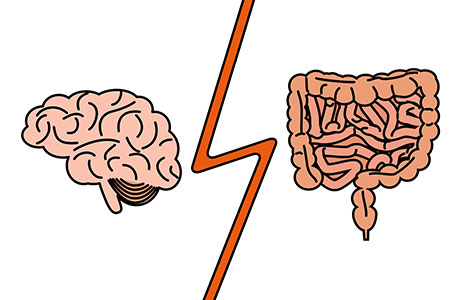 The gut microbiome may contribute to or modulate the pain of visceral hypersensitivity, but how the microbiome affects neurotransmission, pain perception, and GI function is not well understood. Pokusaeva and colleagues hypothesized that production of the neurotransmitter γ-aminobutyric acid (GABA) by gut bacteria such as Lactobacillus and Bifidobacterium might be one mechanism through which the microbiome-gut-brain axis functions to modulate visceral pain.
The gut microbiome may contribute to or modulate the pain of visceral hypersensitivity, but how the microbiome affects neurotransmission, pain perception, and GI function is not well understood. Pokusaeva and colleagues hypothesized that production of the neurotransmitter γ-aminobutyric acid (GABA) by gut bacteria such as Lactobacillus and Bifidobacterium might be one mechanism through which the microbiome-gut-brain axis functions to modulate visceral pain.
Connecting the Microbiome and Visceral Pain
The researchers identified Bifidobacterium dentium as a human commensal microbe which secretes significant quantities of GABA via metabolism of glutamate mediated by the gadB gene. B. dentium is found in healthy children and adults. In experiments using Swiss Webster and C57BL/6 mice, increased GABA production was found in mice receiving B. dentium or another Bifidobacterium species, B. breve, which had been transformed to express gadB.Pokusaeva et al. used a rat model of visceral hypersensitivity to evaluate the effect of this microbe. They induced fecal retention (FR) in Sprague Dawley® rats, which causes constipation and visceral pain. Treatment of these rats with B. dentium inhibited visceral hypersensitivity:
Source
Furthermore, this paper suggests the interesting conclusion that GABA-producing microbes might be beneficial probiotics able to reduce visceral pain. Such a probiotic therapy could bring some relief to patients with GI disorders, such as irritable bowel disorder and constipation.















.jpg)

.jpg)
.jpg)
.jpg)
.jpg)





.jpg)


.jpg)
.jpg)

.jpg)


.jpg)





.jpg)

.jpg)




